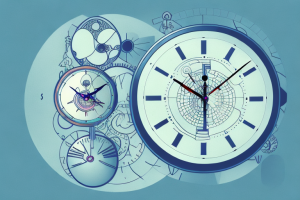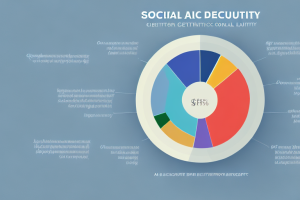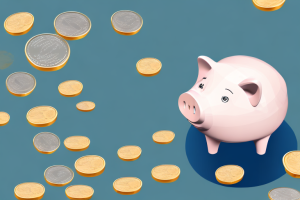As we navigate through life, it is natural to wonder at what age we start feeling tired and old. Understanding the aging process is essential in exploring this question.
Understanding the Aging Process
The aging process is a complex journey that involves various biological, psychological, and social factors. From the moment we are born, our bodies undergo continuous changes, and as we get older, these changes become more noticeable. While the timing may vary from person to person, it is generally believed that individuals start feeling the effects of aging in their mid-30s to early 40s. This is when subtle signs and symptoms of aging begin to emerge, including a decrease in energy levels and an increase in fatigue.
The Impact of Age on Energy Levels
As we age, our body’s natural processes slow down, affecting our energy levels. The cells in our body become less efficient at converting food into energy, leading to a decrease in overall stamina. Additionally, age-related hormonal changes can have an impact on our energy levels.
While it is common to experience occasional tiredness and fatigue regardless of age, the frequency and intensity may increase as we grow older. However, it is important to note that feeling tired does not necessarily equate to feeling old. It is a normal part of the aging process and can be managed with certain lifestyle choices and strategies.
Exploring the Relationship between Age and Fatigue
Fatigue, often characterized by a persistent feeling of tiredness or lack of energy, can start to become more prevalent as we age. There are several factors that contribute to this relationship between age and fatigue.
One factor is the natural decline in muscle mass and strength that occurs with aging. As our muscles weaken, simple physical activities that we once performed effortlessly may require more effort, leading to increased fatigue. Additionally, the wear and tear on our joints and bones over time can contribute to feelings of tiredness and discomfort.
Another key factor is changes in our sleep patterns. Older individuals commonly experience changes in their sleep architecture, including lighter sleep, more frequent awakenings, and less time spent in deep sleep. These alterations can impact the quality of our rest and result in daytime fatigue.
Signs of Aging: When Does Fatigue Set In?
While fatigue varies from person to person, certain signs and symptoms tend to emerge as we enter different stages of life.
In our 30s and 40s, many individuals may start to notice subtle changes in their energy levels and stamina. This can manifest as feeling more tired after physical exertion or a longer recovery period after exercise.
As we enter our 50s and 60s, other signs of aging become more prevalent. It may take longer to accomplish tasks that were once easy, and we may find ourselves needing more rest to recharge. Additionally, hormonal changes, such as menopause in women, can further impact energy levels.
By our 70s and beyond, fatigue may become a more persistent companion, requiring older individuals to adjust their daily routines and activities accordingly.
Factors that Contribute to Feeling Tired and Old
Feeling tired and old is influenced by various factors that extend beyond the natural aging process.
Lifestyle choices play a significant role in our overall well-being and can impact our energy levels as we age. Lack of physical activity, poor nutrition, excessive stress, and inadequate sleep can all contribute to feeling tired and old at any age.
Genetics also play a part in how we experience the aging process. Some individuals may be more genetically predisposed to certain health conditions or have inherited traits that affect their energy levels.
How Lifestyle Choices Affect Aging and Fatigue
The relationship between lifestyle and aging is profound. Making conscious choices in areas such as exercise, nutrition, stress management, and sleep can greatly influence how we feel as we grow older.
Regular physical activity, such as aerobic exercise and strength training, can help maintain muscle mass, increase stamina, and enhance overall energy levels. A balanced diet rich in fruits, vegetables, whole grains, and lean proteins provides the essential nutrients needed for optimal energy production.
Effectively managing stress through techniques like meditation, mindfulness, and relaxation exercises can reduce the burden on our bodies and promote greater vitality. Additionally, prioritizing sufficient sleep and establishing healthy sleep patterns can improve overall energy and combat fatigue.
The Role of Genetics in Feeling Tired and Old
While genetics undoubtedly influence the aging process, it is important to note that they are not the sole determinant of how tired or old we feel. Genetic predispositions may make some individuals more susceptible to certain age-related conditions or affect their energy levels, but lifestyle factors still play a significant role.
By adopting healthy habits and making positive choices, we can mitigate some of the influences of genetics and potentially defy the stereotype of feeling tired and old.
Hormonal Changes and Their Influence on Energy Levels
Hormones play a vital role in regulating various functions in our body, including our energy levels. As we age, hormonal changes occur that can affect our overall vitality.
In women, menopause brings about significant hormonal shifts, notably a decline in estrogen levels. This decline can lead to symptoms such as fatigue, mood changes, and sleep disturbances. Similarly, men experience a decline in testosterone levels, which can impact energy and overall well-being.
Understanding how these hormonal changes affect our energy levels can help us identify strategies to manage fatigue effectively.
Sleep Patterns and Aging: How They Interact
Our sleep patterns naturally evolve as we age. Changes in our sleep architecture, as mentioned earlier, can impact our energy levels during the day.
Older adults commonly experience difficulties falling asleep, staying asleep, or achieving deep, restorative sleep. These disruptions can lead to daytime sleepiness and contribute to feeling tired and old. Implementing good sleep hygiene practices, such as maintaining a consistent sleep schedule, creating a relaxing bedtime routine, and optimizing the sleep environment, can promote better sleep quality and combat fatigue.
Mental Health and Aging: The Connection to Fatigue
Mental health plays a significant role in our overall well-being and can directly impact our energy levels. As we age, it is essential to prioritize our mental well-being and address any concerns related to mental health.
Conditions such as depression and anxiety can cause persistent fatigue and drain our energy. Seeking professional help, engaging in therapeutic activities, and maintaining social connections can aid in managing mental health as we age, ultimately influencing our energy levels and how we feel.
Strategies for Managing Fatigue as You Get Older
While aging may bring about changes in our energy levels, there are numerous strategies we can employ to manage fatigue effectively.
First and foremost, maintaining a healthy lifestyle is crucial. Regular exercise, a nutritious diet, stress management techniques, and quality sleep all contribute to optimal energy levels.
Additionally, it is important to listen to our bodies and allow for rest and recovery when needed. Balancing activity with proper rest can help conserve energy and prevent excessive fatigue.
Exploring new hobbies and engaging in activities that bring joy and fulfillment can also combat feelings of tiredness and contribute to a more vibrant sense of aging.
Nutrition Tips to Boost Energy Levels as You Age
Nutrition plays a pivotal role in maintaining optimal energy levels as we age. Here are a few key tips to boost energy through the right food choices:
1. Prioritize a balanced diet: Focus on consuming a variety of fruits, vegetables, whole grains, lean proteins, and healthy fats to provide essential nutrients for energy production.
2. Stay hydrated: Dehydration can contribute to feelings of fatigue, so make sure to drink plenty of water throughout the day.
3. Limit processed foods: Processed and sugary foods can cause energy crashes, so try to minimize their consumption.
4. Include iron-rich foods: Iron deficiency can lead to fatigue, so incorporate iron-rich foods like legumes, leafy greens, and lean meats into your diet.
Exercise and Physical Activity for Combating Fatigue
Regular exercise and physical activity have numerous benefits, including combating fatigue. Here are some key considerations when integrating exercise into your routine:
1. Choose activities you enjoy: Engaging in activities that you find enjoyable increases motivation and makes exercise a consistently enjoyable part of your routine.
2. Gradually increase intensity: Start with activities of low to moderate intensity and gradually build up your endurance to avoid excessive fatigue.
3. Incorporate resistance training: Strength training exercises help maintain muscle mass and improve overall strength, enhancing energy levels and reducing fatigue.
The Importance of Stress Management in Feeling Younger
Stress can greatly impact how we feel and age. Learning effective stress management techniques is essential for maintaining vitality. Here are a few strategies:
1. Practice relaxation techniques: Techniques such as deep breathing, meditation, and yoga can help lower stress levels and combat fatigue.
2. Engage in hobbies and activities you enjoy: Pursuing activities that bring joy and relaxation can alleviate stress and promote a more positive outlook.
3. Prioritize self-care: Making time for self-care activities, such as taking baths, indulging in a good book, or spending time in nature, can enhance overall well-being and reduce stress.
Social Connections: The Impact on Aging and Energy Levels
Human connections and relationships play an integral role in how we age. Maintaining strong social connections can have a positive impact on our energy levels and overall well-being.
Staying connected with friends, family, and the community can provide emotional support, reduce feelings of isolation, and bring a sense of purpose and fulfillment. Engaging in social activities and nurturing relationships can combat fatigue and contribute to a more vibrant sense of aging.
Embracing Self-Care Practices to Combat Feeling Tired and Old
Self-care is a vital component of healthy aging and combating feelings of tiredness and old age. Embracing self-care practices can positively impact our energy levels and overall well-being.
Self-care can take many forms, including prioritizing self-reflection and self-awareness, setting boundaries, practicing mindfulness, and engaging in activities that promote relaxation and fulfillment. It is essential to make time for yourself and nurture your mind, body, and soul in order to age with vitality.
Seeking Medical Advice: When to Consult a Professional
If you are experiencing persistent feelings of fatigue or are concerned about the impact of aging on your energy levels, it is important to seek medical advice.
A healthcare professional can evaluate your symptoms, review your medical history, perform necessary tests, and provide guidance specific to your individual circumstances. They can offer valuable insights and strategies for managing fatigue and help address any underlying health conditions that may be contributing to your feelings of tiredness.
Mindset Shifts for Embracing Aging with Vitality
As we navigate the journey of aging, adopting a positive mindset is crucial for embracing vitality and combating feelings of tiredness and old age.
Shifting our perspective to view aging as a privilege rather than a burden allows us to appreciate the wisdom and experiences that come with growing older. By embracing the aging process, we can cultivate a sense of gratitude and redefine what it means to feel young and energetic at any age.
Empowering Yourself through Healthy Habits as You Age
Ultimately, feeling tired and old is not solely determined by age, but by how we choose to care for our bodies and minds. By empowering ourselves with healthy habits, staying active, nourishing our bodies, managing stress, and fostering meaningful relationships, we can age with vitality and defy the stereotypes associated with aging.
In conclusion, the age at which individuals start feeling tired and old varies from person to person. However, by understanding the aging process, recognizing the influence of lifestyle choices and genetics, prioritizing self-care, and seeking appropriate medical advice, we can proactively manage fatigue and embrace the aging process with vitality and zest.



